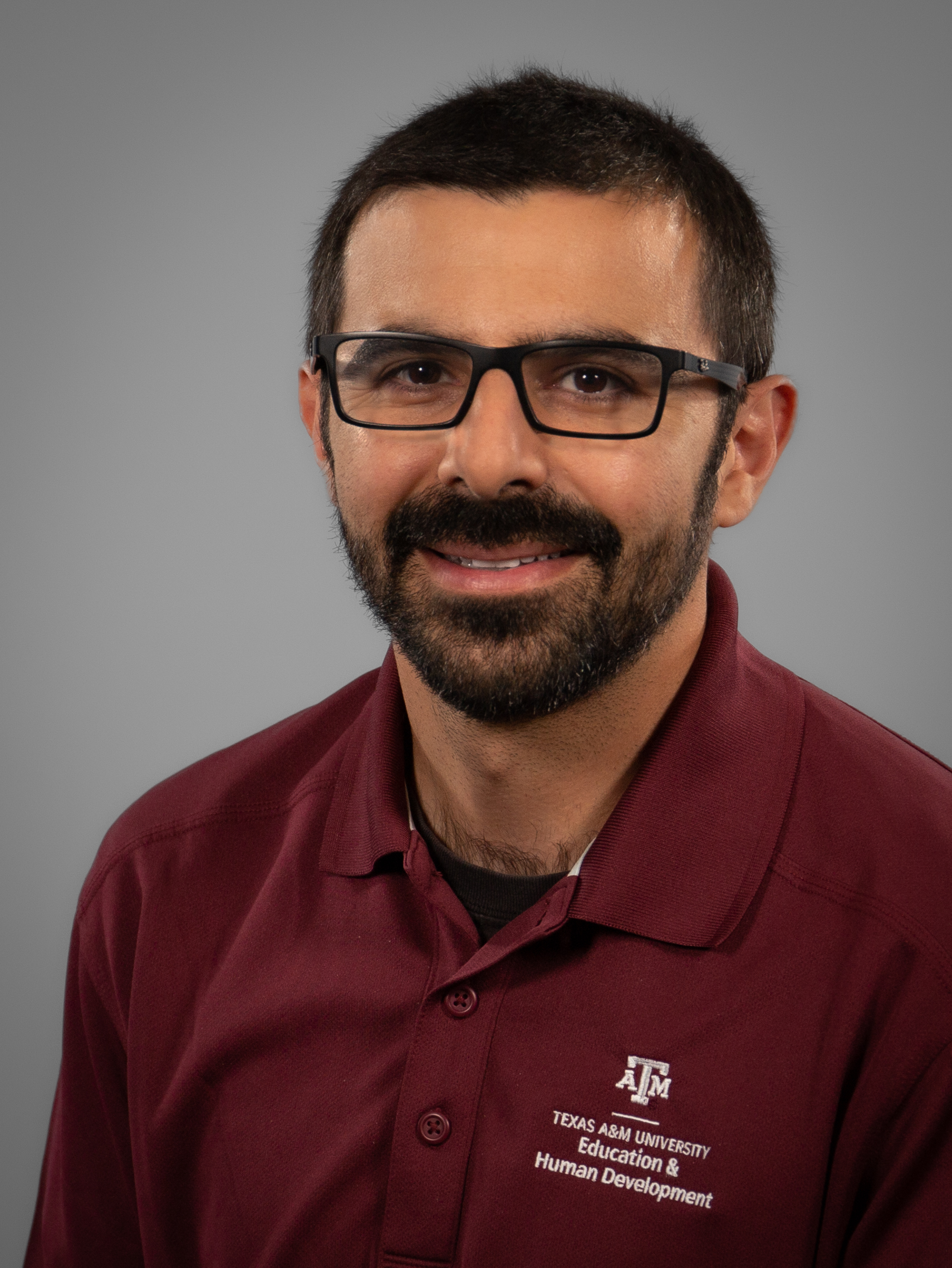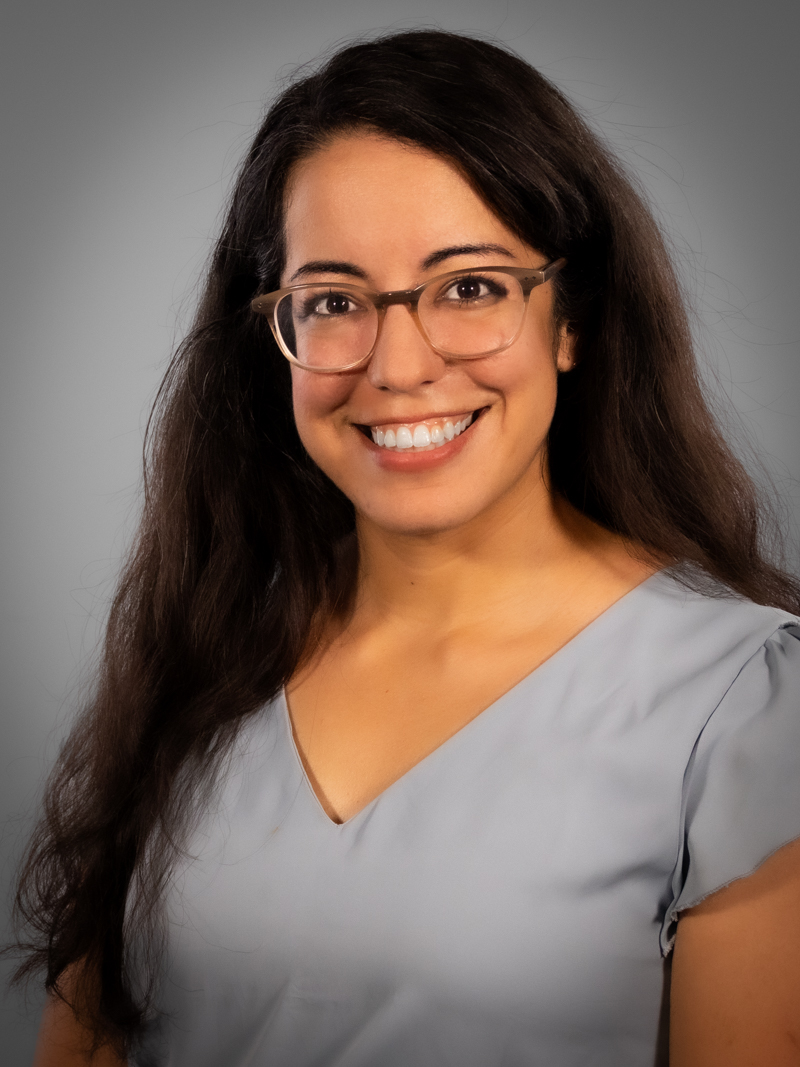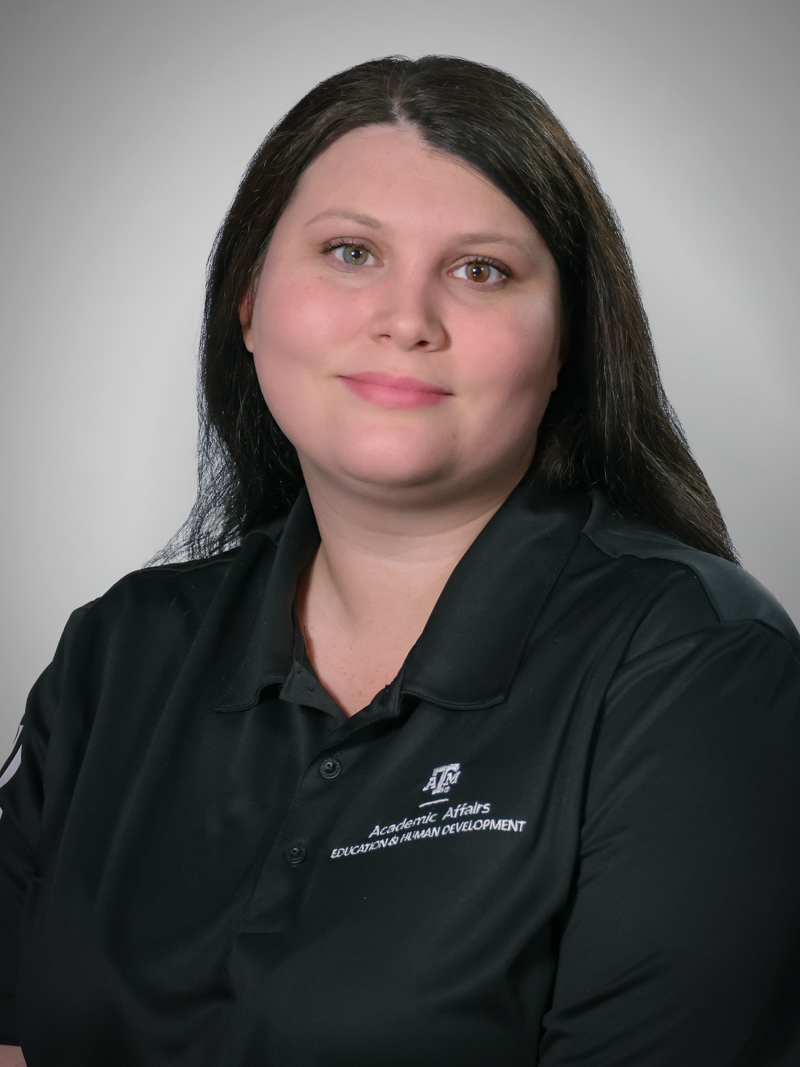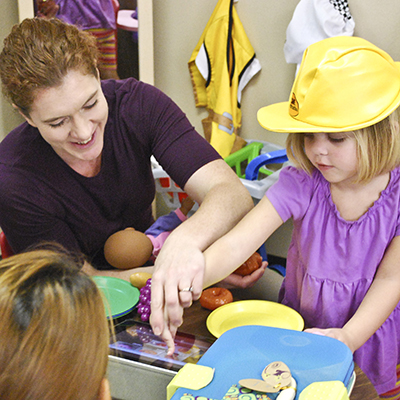M.Ed. in Educational Psychology: Emphasis in Developmental Sciences
An Online and On-Campus Program
Human development is a complex process that is situated within a multi-layered biological, psychological, and social-cultural context. Developmental sciences focus on the examination of biological, psychological, interpersonal, and contextual factors which impact the trajectories of behaviors, personality, well-being, learning outcomes, and relationships of individuals and families across the lifespan (from infancy through adulthood). The mission of our M.Ed. program is to cultivate next generation of professionals equipped with developmental science knowledge to serve children, youth, and families across diverse populations and communities.
What can you do with this degree?
This program prepares you to work in fields serving children, youth, and families. Graduates pursue employment opportunities across a wide range of sectors including pre-K to G12 school settings, higher education institutions, non-profit organizations, private industries, and governmental agencies. Example employment opportunities may include research and development specialists, academic advisors, data analysts, family educators, life skill instructors, childcare directors, youth services coordinators, mental health specialists, and social and human service specialists. In addition, this degree generally serves individuals whose careers may benefit from understanding individuals and families from a developmental lens, such as teachers and school administrators.
Who are we?
Faculty
Our faculty conduct research on a wide range of topics, such as social and emotional learning and development, interpersonal relationships, self-regulation, developmental psychopathology, intervention and prevention sciences, neuroscience and psychophysiological approaches, STEM learning and motivation, academic resilience, as well as creativity, gifted, and talented education. Check out each faculty’s profile below to learn more about their research and course offerings.










Academic Advisors

Program Details
The Master’s Program in Educational Psychology with an emphasis in Developmental Sciences (M.Ed.) is a part of the Learning Sciences Division (LS), housed within the Department of Educational Psychology (EPSY) and the College of Education and Human Development (CEHD) at Texas A&M University.
Degree: Master’s in Educational Psychology
Emphasis: Developmental Sciences
Degrees Offered: Master of Education (M.Ed.)
Delivery: On-Campus or Online
Minimum Credit Hours: 36
Select College of Education and update credit hours.
Curriculum
M.Ed. Curriculum
FOUNDATION COURSES (6 credit hours)
EPSY 602 Educational Psychology (3 credit hrs.)
EPSY 673 Learning Theories (3 credits)
SPECIALIZED COURSES (6-12 credit hours)
At least two of the following courses:
EPSY 648 Intelligence and Creativity (3 credit hrs.)
EPSY 606 Motivation and Emotion (3 credit hrs.)
EPSY 634 Educational Neuroscience (3 credit hrs.)
EPSY 646 Issues in Child and Adolescent Development (3 credit hrs.)
EPSY 647 Lifespan Development (3 credit hrs.)
RESEARCH COURSES (3-6 credit hours)
At least one of the following courses:
EPSY 603 Qualitative Methodologies in Educational Research (3 credit hrs.)
EPSY 622 Measurement and Evaluation (3 credit hrs.)
EPSY 607 Understanding Research from a Consumer’s Perspective (3 credit hrs.)
ADDITIONAL ELECTIVE COURSEWORK (12-21 credit hours)
Choose from the following courses:
EPSY 624 Creative Thinking (3 credit hrs.)
EPSY 631 Program Evaluation (3 credit hrs.)
EPSY 632 Social and Emotional Development and Interventions (3 credit hrs.)
EPSY 636 Techniques of Research (3 credit hrs.)
EPSY 645 Creative Genius (3 credit hrs.)
EPSY 659 Field Practicum in Educating Gifted, Talented, and Highly Creative (3 credit hrs.)
EPSY 671 Interpersonal Relationships (3 credit hrs.)
EPSY 689 Developmental Neurobiology of Learning (3 credit hrs.)
EPSY 689 Temperament, Behavior Problems, and Psychopathology (3 credit hrs.)
LDTC 613 Integrating Technology in Learning Environment (3 credit hrs.)
LDTC 645 Emerging Technologies for Learning I (3 credit hrs.)
LDTC 646 Emerging Technologies for Learning II (3 credit hrs.)
___________________________________________
• The Developmental Sciences Specialization requires a minimum of 36 credits to earn a M.Ed.
• Core course requirements may be waived for students who have successfully completed comparable
graduate coursework and/or demonstrate requisite knowledge and skills.
• Additional courses both within and outside of EPSY (including additional courses in learning sciences or
research, measurement, and statistics) may count toward elective coursework.
• Students should consult with their advisor or program committee to identify appropriate elective
Apply
STEP 1 - GATHER INFORMATION
If you are considering applying to our Developmental Science MEd degree program, consider gathering information about yourself and about the program.
Gather information about yourself
- Your career goals. This degree program is geared for students who wish to become professionals whose work serve children, youth, and families in diverse populations and communities. This program will allow you to develop content knowledge expertise in various domains of human development, and to become intelligent consumers of developmental research.
- Your previous academic experiences and current skill set. This program is a good match for you if you have had experience or training to work in the education field. It is also a good match if your careers may benefit from understanding individuals and families from a developmental lens, such as those with career goals to serve children, youth, and families in diverse populations and communities
- Your expectations. In this program, you will take courses on broad educational psychology topics, learning theory, and more specific program courses on development at various life stages in various domains. You will also take courses that will provide you with foundational understanding of research methods and statistics in developmental science.
- The timing of your application. We have two application cycles for this program, one in the spring and one in the fall. The best time for you to apply is when you are ready to start and make progress on a graduate degree program.
Gather information about our programs
- Consider the coursework you will take. Take a look at the coursework we offer in the “Program Details” section of this website. Our graduate student handbook is also available in the same section to offer more details about the program for Masters students.
- Follow us on social media: You can take a look at our ongoing activities and learn more about what we do on our social media platforms. We have a Learning Sciences Facebook page and a Learning Sciences Twitter account.
- Ask remaining questions. If you have additional questions about the program, you can contact the academic advisor for graduate students. The academic advisor can help answer additional questions you may have about the degree and credit information, admissions deadlines, required application materials, and coursework for the degree program.
STEP 2 - GATHER MATERIALS
Application materials
All materials (except for TOEFL/IELTS scores) will be uploaded directly to the Graduate CAS Grad application. Additional information about materials can be found in our Departmental Admissions requirements page for our Master’s degree programs.
Individually prepared materials
- Statement of Purpose
- Resume/CV
Recommendation letters submitted on your behalf
- Three letters of recommendation
Transcripts and standardized test scores
Make sure you have enough time to have the official transcripts from prior degrees sent to you before the application deadline. You cannot be considered for acceptance into the program until an official transcript is on file with Texas A&M University.
- Official transcripts and records from all colleges and universities attended (excluding community colleges; minimum 3.0 GPA recommended)
- International students from non-English speaking countries only: Official TOEFL scores (or IELTS scores)
- The GRE is not required for this program.
Preparing a statement of purpose for this program
Your statement of purpose should include not only your inspiration for pursuing a Master’s degree; it should also highlight your past training, research, and applied experiences in relevant fields. In addition, you should also state your career goals and plans for this graduate training, such as the expertise and experiences you would like to develop/gain from this program. Finally, if you are applying to multiple programs across universities, each program you apply to will be different. Remember to customize your statement of purpose for each program. This allows you to better illustrate how each specific program will be useful and help you meet your career goals.
- Preparing your personal statement for graduate school applications: https://www.apa.org/ed/precollege/psn/2016/09/graduate-school-applications
Preparing a resume/CV for this program
In general, your CV should highlight your past academic and professional experiences relevant to the program you are applying to. This could include (but not limited to) your education background, past research training and achievement, past teaching experience and certification, and applied work/volunteer experience (e.g., experience working with youth and families as a counselor, social worker, program developer, etc).
- Build a better CV: https://www.apa.org/gradpsych/2015/01/curriculum-vitae
Preparing references to write letters of recommendation for this program
Letters of recommendations should be from professors, course instructors, or research mentors. Letters should not be from family or friends.
- The art of the letter: https://www.apa.org/monitor/2017/01/letter-recommendation
General tips
- Preparing and Applying for Graduate School in Psychology: https://www.apa.org/education-career/grad/application-video-series
STEP 3 - APPLY TO PROGRAM
Important! Please make sure you apply to the correct program: Master’s of Education degree in Developmental Science. If you do not see the program listed in the application portal, it is possible the deadline has passed. If this occurs, please contact the academic advisor for graduate students for further advice.
Admissions Deadlines
- Spring: October 15
- Summer & Fall: March 22
Frequently Asked Questions
Masters
List of Bachelor Degree Equivalencies
Please view a brief List of Bachelor Degree Equivalencies by Country. If you do not find your country listed and are unsure of your degree equivalency, please contact the Office of Admissions at admissions@tamu.edu.
Is supervision of experience requirements offered?
It is the responsibility of students to independently seek out supervision opportunities. TAMU does not provide supervision for practicum hours.
Statement of Purpose Essay
All applicants must complete the Essay, Statement of Purpose and explain the following:
-
- Why you applied to this program
- Academic background and training
- Potential for graduate study
- Research experience
- Other relevant professional experiences
-
I want/need a Graduate Assistantship/Fellowship – how do I apply?
Please note that we cannot guarantee any financial assistance to any student. We will contact all admitted students about the process for applying for all available assistantships. This is a separate process from applying for admission. The department and programs will choose students to be nominated for Graduate Diversity or Graduate Merit fellowships. These fellowships are only open to U.S. citizens. Please do not ask to be nominated for one of these fellowships as the program will determine which students are competitive for these awards.
Can I send supplemental materials?
You can send us anything you like, and will keep them in our application file. However, we will not upload these items to your file. If you want items such as a professional paper or resume included for review, you need to upload these items to the application as we cannot upload them on your behalf.
How do I submit my letters of Recommendation?
The GraduateCAS online application includes a Recommendations section where you must add your recommenders’ information. Once you have saved the recommendation requests, GraduateCAS will contact each recommender via email to request the completion of the recommendation form and letter of recommendation. We require three letters of recommendations and they must be submitted directly by recommenders through the electronic system.
What are the typical program costs?
Check out the cost of attendance estimator.
Please note, you must update the program hours.
For a better understanding of your total cost of attendance (COA), please visit our cost and tuition rates webpage (https://aggie.tamu.edu/billing-and-payments/cost-and-tuition-rates). This webpage will provide you with an opportunity to review estimated COA information for undergraduate, graduate and professional students, as well as other resources such as the tuition calculator and billing and fee explanations.
Can you guide me through the application process?
How to Apply: Master’s Application Information | Doctoral Application Information
I live out of state. Do you accept out-of-state applicants?
Yes, we accept in-state and out-of-state applicants.
Is there any opportunity for financial assistance?
Yes, there are opportunities for financial assistance through the following departments: Office of Graduate Studies Financial Aid
Tuition & Fees
For a better understanding of your total cost of attendance (COA), please visit our cost and tuition rates webpage (https://aggie.tamu.edu/billing-and-payments/cost-and-
tuition-rates). This webpage will provide you with an opportunity to review estimated COA information for undergraduate, graduate and professional students, as well as other resources such as the tuition calculator and billing and fee explanations.






